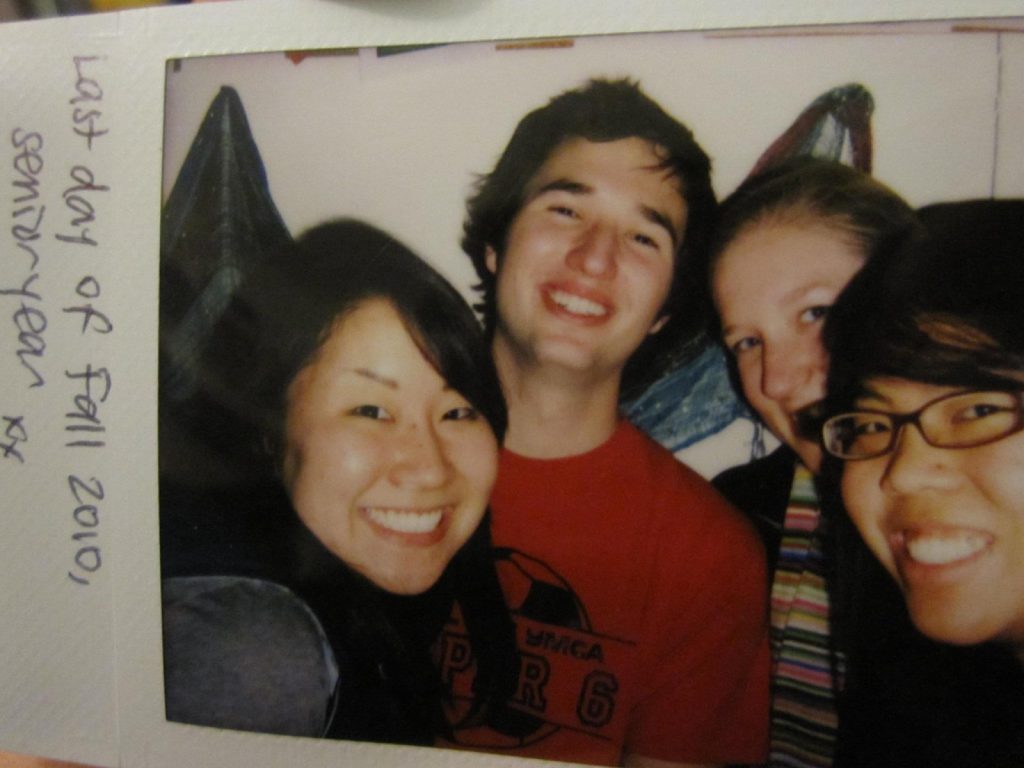
Elisse Ota ’11 talks to NER intern Bel Spelman ’23 about the influence learning Japanese has on her writing and storytelling.
Bel Spelman: Where are you now, geographically and professionally?
Elisse Ota: My husband and I have been waiting for the past year and a half to move to Japan, but, unfortunately, due to the pandemic and the closure of Japan’s borders, we’ve been held in limbo. Currently, I am living in California and am at work on a collection of short stories that I hope to finish this year.
BS: What was one skill you developed as an undergraduate—either in school or through internships—that most benefits you today in your professional work?
EO: One of the greatest gifts I received at Middlebury was learning a new language, specifically Japanese. When you’re learning a new language you wade clumsily towards meaning and you don’t always get there via words alone. You find that you need other things to help you—body language, facial expression, intonation—and, as you gather up every clue you can find to understand what is being said, you realize that communication is not merely a matter of grammar and words, and that what is said reveals as much as it conceals. Often, what’s unsaid is the most important thing, especially in a high-context culture like Japan’s in which politeness dictates certain verbal acknowledgements that conceal one’s true feelings to preserve group harmony. As a learner of Japanese, I both learned how to speak Japanese and how to pay close attention to things other than language to understand what a person truly thought and felt. This ability to both use language and to read the subtext of a conversation has helped me tremendously as a fiction writer. People are complex. They don’t often say what’s truly important to them, and this is the reason I love storytelling. It is a way to show the truth when it’s too difficult, or painful, or coarse, or simplistic to tell it directly.
BS: Do you have any book recommendations?
EO: I recently finished Hannah Coulter by Wendell Berry, which I thought was fantastic! It’s a beautifully rendered portrait of a small farming community in Kentucky, and I appreciated Berry’s elegant and heart-wrenching exploration of what it means to hope while shedding expectations. I also love William Trevor’s work, especially his short story collection After Rain, and Mary Yukari Waters’s collection The Laws of Evening is one I go back to again and again. Tessa Hadley’s book, Bad Dreams and Other Stories, is also a gem!
BS: Is there a past project that you’re particularly fond of?
EO: Out of all the stories I’ve written, “Girl From the Moon,” which was published in Narrative, is one of my favorites. I am also looking forward to the publication of another story called “The Paper Artist,” that will come out as a Ploughshares Solo this fall.